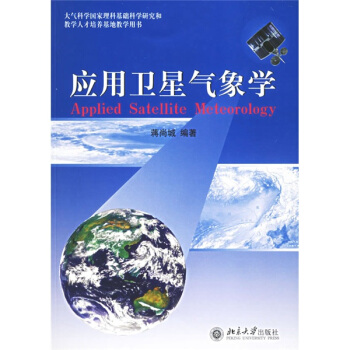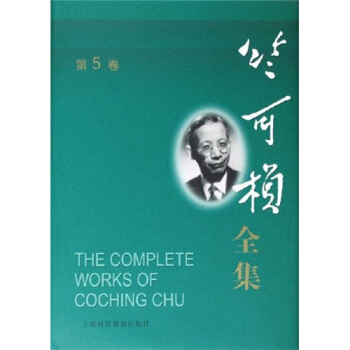![基本粒子及其相互作用:概念和唯象论 [Elementary Particles and Their Interactions:Concepts and Phenomena]](https://pic.qciss.net/10104484/02c1d007-a192-41c7-a634-326071e874c3.jpg)

具体描述
内容简介
The last few decades have seen major advances in the physics of elementary particles. New generations of particle accelerators and detectors have come into operation, and have successfully contributed to improving the quantity and quality of data on diverse interaction processes and to the discoveries of whole new families of particles. At the same time, important new ideas have emerged in quantum field theory, culminating in the developments of theories for the weak and strong interactions to complement quantum electrodynam-ics, the theory of the electromagnetic force. The simplest of the new theories that are at the same time mathematically consistent and physically successful constitute what is known as the standard model of the fundamental interac-tions. This book is an attempt to present these remarkable advances at an elementary level, making them accessible to students familiar with quantum mechanics, special relativity, and classical electrodynamics.内页插图
目录
1 Particles and Interactions:An Overview1.1 A Preview
1.2 Particles
1.2.1 Leptons
1.2.2 Quarks
1.2.3 Hadrons
1.3 Interactions
1.4 Symmetries
1.5 Physical Units
Problems
Suggestions for Further Reading
2 B080n Fields
2.1 Lorentz Symmetry
2.1.1 Lorentz TraIlsformations
2.1.2 Tensor Algebra
2.1.3 llensor Fields
2.2 Scalar Fields
2.2.1 Space-Time Translation of a Scalar Field
2.2.2 Lorentz Transformation of a Scalar Field
2.3 Vector Fields
2.4 The Klein-Gordon Equation
2.4.1 Free-Patticle Solutions
2.4.2 Particle Probability
2.4.3 Second Quantization
2.4.4 Operator Algebra
2.4.5 Physical Significance of the Fock Operators
2.5 Quantized Vector Fields
2.5.1 Maesive Vector Fields
2.5.2 The Maxwell Equations
2.5.3 Quantization of the Electromagnetic Field
2.5.4 Field Energy and Momentum
2.6 The Action
2.6.1 The Euler-Lagrange Equation
2.6.2 Conserved Current
Problems
Suggestions for Further Reading
3 Fermion Fields
3.1 The Dirac Equation
3.2 Lorentz Symmetry
3.2.1 Covariance of the Dirac Equation
3.2.2 Spin of the Dirac Field
3.2.3 Bilinear Covariants
3.3 Free.Particle Solutions
3.3.1 Normalized Spinors
3.3.2 Completeness Relations
3.3.3 Helicities
3.4 The Lagrangian for a Free Dirac Particle
3.5 Quantization of the Dirac Field
3.5.1 Spins and Statistics
3.5.2 Dirac Field Observables
3.5.3 F0ck Space
3.6 Zero-Mass Fermions
Problems
Suggestions for Further Reading
4 Collisions and Decays
4.1 Interaction Representation
4.1.1 The Three Pictures
4.1.2 Time E:volution in the Interaction Picture
4.1.3 The S.matrix
4.2 Cross.Sections and Decay Rares
4.2.1 General Formulas
4.2.2 Two-Body Reaction to Two-Body Final States
4.2.3 Decay Rates
4.3 Interaction Models
4.4 Decay Modes of Scalar Particles
4.4.1 Neutral Decay Mode
4.4.2 Charged Decay Mode
4.5 Pion Scattering
4.5.1 The Scalar Boson Propagator
4.5.2 Scattering Processes
4.5.3 Summary and Generalization
4.6 Electron-Proton Scattering
4.6.1 The Electromagnetic Interaction
4.6.2 Electron-Proton Scattering Cross-Section
4.7 Electron-Positron Annihilation
4.8 Compton Scattering
Problems
Suggestions for Further Reading
5 Discrete Symmetries
5.1 Parity
5.1.1 Parity in Quantum Mechanics
5.1.2 Parity in Field Theories
5.1.3 Parity and Interactions
5.2 Time Inversion
5.2.1 Time Inversion in Quantum Mechanics
5.2.2 Time Inversion in Field Theories
5.2.3丁and Interactions
5.3 Charge Conjugation
5.3.1 Additive Quantum Numbers
5.3.2 Charge Conjugation in Field Theories
5.3.3 Interactions
5.4 The CPT Theorem
5.4.1 Implications of CPT Invariance
5.4.2 C.P,T.and CPT
Problems
Suggestions for Further Reading
6 Hadtons and Isospln
6.1 Charge Symmetry and Charge Independence
6.2 Nucleon Field in Isospin Space
6.3 Pion Field in Isospin Space
6.4 G.Parity
6.4.1 Nucleon and Pion Fields
6.4.2 Other Unflavored Hadrons
6.5 Isospin of Strange Particles
6.6 Isospin Violations
6.6.1 Electromagnetic Interactions
6.6.2 Wlealc Interactions
Problems
Suggestions for Further Reading
7 Quarks and SU(3)Symmetry
7.1 Isospin:SU(2) Symmetry
7.2 Hypercharge:SU(31 Symmetry
7.2.1 The Fundamental Representation
7.2.2 Higher.Dimensional Representations
7.2.3 Physical Significance of F3 and F3
7.2.4 3×3*Equal Mesons
7.2.5 3×3×3 Equal Baryons
7.3 Mass Splitting of the Hadron Multiplets
7.3.1 Baryons
7.3.2 Mesons
7.4 Including Spin:SU(6)
7.4.1 Mesons
7.4.2 Baryons
7.4.3 Application:Magnetic Moments of Hadrons
7.5 The Color of Quarks
7.6 The New Particles
7.6.1 J/tf,and Charm
7.6.2 The TaU Lepton
7.6.3 From Bottom to ToP
Problems
Suggestions for Further Reading
8 Gauge Field Theories
8.1 Symmetries and Interactions
8.2 Abelian Gauge Invariance
8.3 Non.Abelian Gauge Invariance
8.4 Quantum Chromodynamics
8.5 Spontaneous Breaking of Global Symmetries
8.5.1 The Basic Idea
8.5.2 Breakdown ofDiscrete Symmetry
8.5.3 Breakdown of Abelian Symmetry
8.5.4 Breakdown of Non-Abelian Symmetry
8.6 Spontaneous Breaking ofLocal Symmetries
8.6.1 Abelian Symmetry
8.6.2 Non.Abelian Symmetry
Problems
Suggestions for Further Reading
9 The Standard Model of the Electroweak Interaction
9.1 The Wleak Interaction Before the Gauge Theories
9.2 Gauge.Invariant Model of One.Lepton Family
9.2.1 Global Symmetry
9.2.2 Gauge Invariance
……
精彩书摘
1.4 SymmetriesThe recent history of physics gives us several examples that illustrate theimportance of the symmetry considerations in explaining empirical observa.tions or in developing new ideas .Thus,the intriguing regularities found in the atomic periodic table can be naturally explained as resulting from the rotational symmetry that characterizes atoms in their ground states;similarly,the relativity theory owes the clarity and the elegance of its fornmlation toits guiding principle,Lorentz in variance .However,more than any other field,particle physics,perhaps because of the very nature of the subject or becauseof the absence of relevant macroscopic analogies or useful classical correspon.dences,has by necessity conferred upon the symmetry concept a key role that has become essential in fornmlating new theories.The existence of the Q-particle and the reality of quarks are two outstanding demonstrations of thepower of this line of reasoning.but no less impressive is the prediction of theexistence of the electronic neutrino by Wolfgang Pauli back in 1 930 solely onthe basis of the conservation of energy, momentum,and angular nlomentum,the validity of which was still in doubt at the time.Pauli took a road less traveled by and opened up a whole new world. The prominent place taken by the symmetry considerations throughout this book only reflects their importance in particle physics.In this section .we will sketch a general picture of the idea. and briefly define various symmetry operations. As we have seen above .every particle js identified by a set of quantumnumbers.These numbers summarize the intrinsic properties of the particleand,for this reason,are called the internal quantum numbers,meaning thatthey have nothing to do with the kinetic state of the particle.which is de.scribed by other conserved quantities that depend on the state the particleis in,such as the energy,momentum,or angular momentum. The existence of a quantum number in a system always arises from theinvariance of the system under a qlobal geometrical transformation.that is。one that does not depend on the coordinates of the space.time point whereit is applied.A simple example suffices to illustrate the general situation.Consider two particles in a refefence frame iu which their interaction energydepends only on the relative distance of the particles.It follows then,first,that a displacement of the origin of the coordinates by an arbitrary distanceproduces no measurable physical effects on the system,and second,that thetotal momentum of the system remains constant in time because its rate ofchange,given by the total gradient of the interaction energy,is strictly zero.So,generally.if we have a physicaI system in which the absolute positions arenot observable fits energy depending off the relative distance rather than in.dividual particle positionsl and if we apply on it a geometrical transformation(spatial translation),then we obtain as direct consequences the invariance ofthe systern to the applied transformation(translational invariance)and theexistence of a conservation rule fmomentum conservation).These are,inshort,the interdepelldent aspects found in every symmetry principle.前言/序言
The last few decades have seen major advances in the physics of elementary particles. New generations of particle accelerators and detectors have come into operation, and have successfully contributed to improving the quantity and quality of data on diverse interaction processes and to the discoveries of whole new families of particles. At the same time, important new ideas have emerged in quantum field theory, culminating in the developments of theories for the weak and strong interactions to complement quantum electrodynam-ics, the theory of the electromagnetic force. The simplest of the new theories that are at the same time mathematically consistent and physically successful constitute what is known as the standard model of the fundamental interac-tions. This book is an attempt to present these remarkable advances at an elementary level, making them accessible to students familiar with quantum mechanics, special relativity, and classical electrodynamics.The main content of the book is roughly divided into two parts; one on theories to lay the foundation and the other on further developments of concepts and descriptions of phenomena to prepare the student for more advanced work. After a brief overview of the subject and a presentation of some basic ideas, two chapters which deal mostly with relativistic one-body wave equations, quantization of fields, and Lorentz invariance follow. In the spirit of the practical approach taken in this book, a heuristic derivation of the Feynman rules is given in the fourth chapter, where the student is shown how to calculate cross-sections and decay rates at the lowest order.The following chapter contains a discussion on discrete symmetries and the concept of symmetry breaking. Isospin is introduced next as the simplest example of internal symmetries in order to ease the reader into the notion of unitary groups in general and of SU(3) in particular, which is discussed next together with the recent discoveries of new particles. The next two chapters present the standard model of the fundamental interactions. We make contact with experiments in subsequent chapters with detailed studies of some fundamental electroweak processes, such as the deep inelastic lepton-nucleon scattering, the CP violation in the neutral K mesons, the neutrino oscillations and the related problem of the solar neutrino deficit, and finally,the r lepton decay, which touch upon many aspects of weak interactions. The very high precision of the data that is now attained in some of these processes requires a careful examination of higher-order effects. This leads to a detailed study of one-loop QCD corrections to weak interactions. The next chapter demonstrates the remarkable property of asymptotic freedom of quantum chromodynamics and introduces the powerful concept of the renormalization group which plays a central role in many phenomena. The heavy flavors of quarks, which pose new questions on several aspects of interactions and could open windows on the new physics, form the subject of a separate chapter.We close with a review of the present status of the standard model and,briefly, of its extensions. Selected solutions to problems are given. Finally,important formulas are collected in an Appendix for convenient reference.
用户评价
《基本粒子及其相互作用:概念和唯象论》这本书,对我而言,是一次深刻的认知洗礼。作者用一种极其引人入胜的方式,带领我们穿越了基本粒子物理学的迷宫。他们对量子场论的介绍,虽然深邃,却充满了清晰的逻辑链条。我尤其喜欢书中对“概念”的强调,那些关于粒子性质、对称性原理的阐述,让我感觉自己不再是被动地接受知识,而是主动地参与到构建对宇宙基本单元的理解中。举个例子,在讲解标准模型中的希格斯玻色子时,作者不仅仅是描述了它的存在,更是深入探讨了它与标准模型其他粒子的相互作用机制,以及它在宇宙演化中的潜在作用。这种宏观与微观的结合,让我对整个粒子物理学的图景有了更全面的把握。书中对于弱相互作用和电弱统一理论的讲解,也给我留下了深刻的印象,让我理解到这些看似微不足道的相互作用,却是宇宙中许多重要现象的根源。这本书的语言风格非常独特,既有科学的严谨,又不乏哲学思辨的深度,读起来仿佛在进行一场智慧的对话。
评分我最近读了《基本粒子及其相互作用:概念和唯象论》,它彻底颠覆了我对微观世界的固有认知。这本书不仅仅是关于粒子名称的罗列,更重要的是它深入剖析了这些粒子是如何相互作用,以及这些相互作用如何构成了我们所处的宇宙。作者在讲解过程中,非常注重概念的清晰度和逻辑的严谨性,让我能够一步步地理解那些复杂而精妙的理论。我特别欣赏书中对“唯象论”的阐述,它让我明白了许多理论的诞生都离不开对实验现象的敏锐洞察和归纳总结。比如,书中在介绍中微子振荡时,就从实验观测出发,逐步引出了中微子质量的存在,这种从现实出发的讲解方式,让我觉得物理学非常贴近生活。而且,书中对于不同相互作用力——强力、弱力、电磁力和引力——的详细对比和分析,也让我对宇宙的基本运行规则有了更深刻的理解。读完这本书,我感觉自己对粒子物理学的理解上升到了一个新的高度,仿佛整个微观世界都展现在我的面前,充满了无限的可能和未知的奥秘。
评分我一直对那些隐藏在物质世界深处的力量感到着迷,而《基本粒子及其相互作用:概念和唯象论》这本书,就像是为我打开了一扇通往微观粒子宇宙的大门。它不仅仅是一本教科书,更像是一次深入的对话,作者用一种极其耐心的口吻,引导着读者一步步探索基本粒子世界的奥秘。那些看似深不可测的理论,比如量子场论,在书中得到了非常清晰的阐述。我惊喜地发现,原来那些复杂的数学公式背后,竟然是如此富有洞察力的物理图像。作者对于对称性和守恒定律在粒子物理学中的重要性的强调,也让我受益匪浅。我开始理解,为什么物理学家们如此钟情于寻找新的对称性,以及这些对称性如何预言了新粒子的存在。书中的一些例子,比如对标准模型的介绍,虽然涵盖了复杂的粒子和相互作用,但通过清晰的图示和细致的解释,让原本枯燥的知识变得生动起来。特别是对希格斯机制的讲解,作者用了相当大的篇幅,从不同角度进行剖析,让我这个初学者也能大致理解它是如何赋予粒子质量的。这本书的语言风格严谨而不失温度,既有学术的深度,又不乏对读者求知欲的激发,读起来有一种酣畅淋漓的感觉。
评分最近,我翻阅了《基本粒子及其相互作用:概念和唯象论》这本书,它带给我的震撼是难以言喻的。这本书并非仅仅罗列粒子和它们的相互作用,而是试图构建一种对整个基本粒子物理学框架的深刻理解。作者在阐述过程中,巧妙地将理论概念与实验观测相结合,这种“概念与唯象论”的结合,让抽象的物理世界变得触手可及。我特别欣赏书中对“唯象”方法的探讨,它让我理解到,许多重大的物理理论并非凭空产生,而是源于对海量实验数据的细致分析和归纳。例如,作者在介绍量子电动力学(QED)时,不仅仅给出了狄拉克方程,更详细地描述了电子和光子的相互作用是如何通过散射实验得到验证的。这种从现象到理论的逻辑推理,让我对科学研究的严谨性有了更深的体会。书中对于夸克模型、强相互作用以及色荷的概念的讲解,也十分到位,让我开始理解质子和中子内部的复杂构成。虽然有些章节涉及到的数学推导对我来说有些挑战,但作者总是能通过形象的比喻和深入浅出的讲解,帮助我抓住核心思想。这本书无疑为我打开了认识宇宙基本构成的新视角,让我对物理学的魅力有了更进一步的认识。
评分这本《基本粒子及其相互作用:概念和唯象论》简直是一场思维的风暴!读完之后,我感觉自己像是刚刚从一个宏大、精妙的宇宙模型中走出来,大脑里回响着夸克、轻子、规范玻色子的名字,以及它们之间那些令人惊叹的相互作用。作者对概念的梳理简直是艺术品,那些抽象的理论在他们的笔下变得生动而易于理解。我尤其喜欢他们对“唯象论”的处理,那种从实验现象出发,逐步构建理论框架的方式,让我看到了科学研究的真实过程,而不是仅仅被灌输一堆结论。例如,在解释弱相互作用时,作者并没有一开始就抛出复杂的费曼图,而是循序渐进地从β衰变等现象入手,然后引出W和Z玻色子的存在,这种层层递进的讲解方式,让我在理解这些“看不见”的粒子时,感到前所未有的踏实。而且,书中对于不同粒子家族的划分、它们各自的性质以及量子数等基本属性的介绍,都做得极其详尽。我感觉自己不再只是一个旁观者,而是开始能够“看见”那些构成我们宇宙最基本单元的微小实体,并且对它们如何共同塑造了我们所熟悉的一切有了更深刻的认识。这本书真的拓展了我的认知边界,让我对物理学的魅力有了全新的体会。
评分世图出的书,质量肯定没问题,不过韩国人的水平嘛,soso
评分是一本需要量子场论知识的粒子物理书籍。
评分是一本需要量子场论知识的粒子物理书籍。
评分挺好的书!深有感触,值得收藏!
评分是一本需要量子场论知识的粒子物理书籍。
评分挺好的书!深有感触,值得收藏!
评分挺好的书!深有感触,值得收藏!
评分挺好的书!深有感触,值得收藏!
评分基本粒子及其相互作用 概念和唯象论,内容很基本也很全面,是一本很好的入门,就是字体小些,也不能算是缺点,纸张利用率高了,包含了更多内容,661页,京东价格优惠很大,支持京东。
相关图书
本站所有内容均为互联网搜索引擎提供的公开搜索信息,本站不存储任何数据与内容,任何内容与数据均与本站无关,如有需要请联系相关搜索引擎包括但不限于百度,google,bing,sogou 等
© 2026 book.teaonline.club All Rights Reserved. 图书大百科 版权所有

![世界优秀教材中国版理科类系列教材·统计和数据分析:从基础到中级(改编版) [STATISTICS DATA ANALYSIS(from Elementary to Intermediate)] pdf epub mobi 电子书 下载](https://pic.qciss.net/10124690/564150ceN2efd2332.jpg)




![复分析(英文影印版) [COMPLEX ANALYSIS] pdf epub mobi 电子书 下载](https://pic.qciss.net/10175905/7673ecbf-71e3-46be-9caf-9ca91682480f.jpg)













